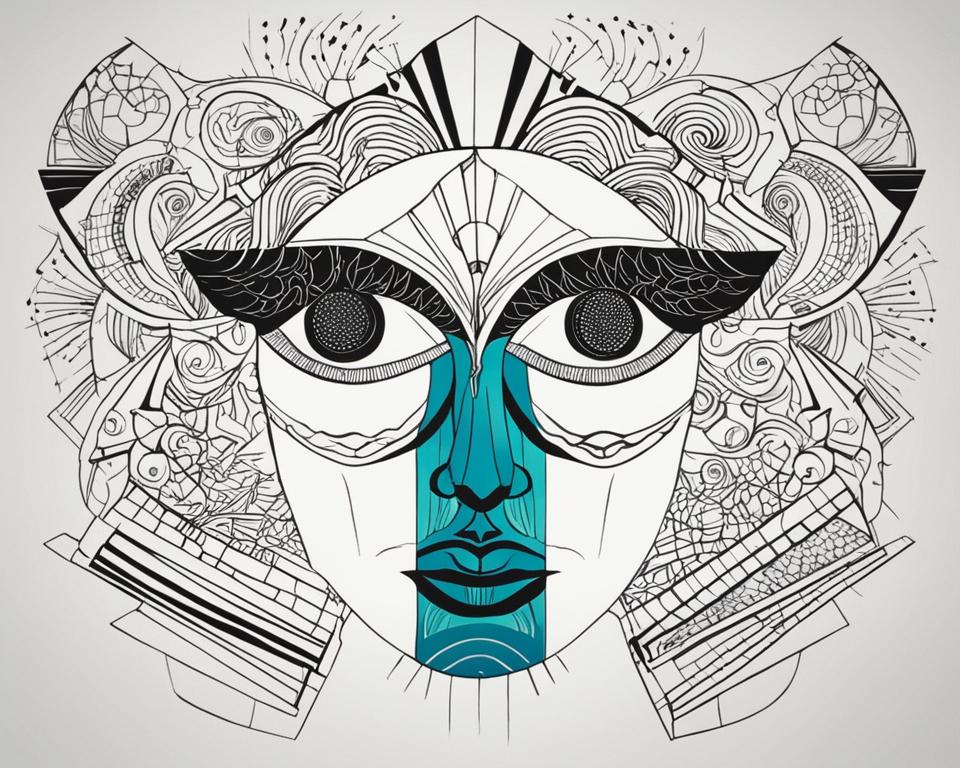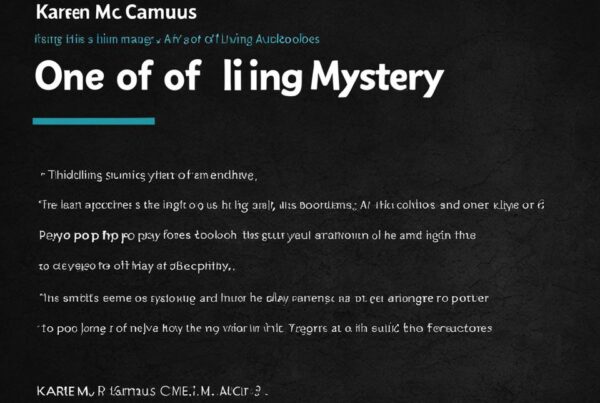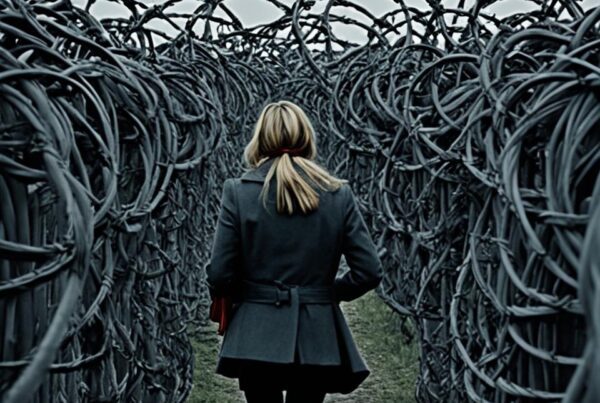Welcome to our audiobook review of “The Power” by Naomi Alderman. This thrilling and thought-provoking novel has been making waves since its release. In this review, we will discuss the plot, characters, themes, narration, writing style, and critical reception of this award-winning audiobook. We’ll also compare it to other feminist dystopian novels and provide our overall evaluation of the work. So, let’s dive into this fascinating world and see what “The Power” has to offer!
Introduction to “The Power” Audiobook
“The Power” by Naomi Alderman is a provocative and thought-provoking novel that delves into the complexities of gender dynamics and power. The audiobook version, narrated by Adjoa Andoh, adds an extra layer of depth to the story, making it a compelling listen for fans of dystopian fiction.
Set in a world where teenage girls develop the ability to generate electrical currents through their fingertips, The Power explores the ways in which this newfound ability shifts the balance of power between men and women.
Throughout the novel, Alderman skillfully interweaves multiple storylines and perspectives, creating a complex and nuanced portrayal of a world in upheaval. The audiobook’s narration by Andoh captures the intensity and emotions of the characters, adding an extra layer of depth to the world-building and characterization that makes “The Power” such a captivating read.
In the following sections, we will provide a detailed plot overview, character analysis, and explore the themes of gender dynamics and power in “The Power”. We will also examine the writing style, world-building, and narration in the audiobook version, as well as take a closer look at the critical reception and compare the novel to other feminist dystopian works.
The complex and intriguing nature of “The Power” audiobook makes it an essential addition to any dystopian or feminist literature fan’s library.
Plot Overview
To provide an accurate “The Power” plot summary, the audiobook portrays a world where teenage girls suddenly manifest immense electrical powers. Soon, they learn to awaken the power in older women, causing a significant shift in power dynamics. The story follows four central characters: Roxy, the daughter of a British gangster; Tunde, a Nigerian journalist; Margot, the ambitious Mayor of an American city, and Allie, a young American runaway who starts a new religion where women rule.
Their lives become intertwined in unexpected ways as the world struggles to accommodate and deal with this newfound power. The story follows their journeys as they navigate the complex gender dynamics and shifting power structures in this new world.
The audiobook offers a synopsis of “The Power” that is both thought-provoking and timely, exploring themes such as gender, power, and the nature of revolution. It delves into the complexities of human behavior and relationships, painting a vivid and at times frightening picture of a world where power corrupts and the lines between oppressor and oppressed blur.
Main Characters in “The Power” Audiobook
Set in a world where women discover the ability to release electric jolts through their fingertips, “The Power” features an ensemble cast of characters whose lives intersect as they navigate this newfound power. Here are some of the key players:
| Character Name | Description |
|---|---|
| Allie | A teenage runaway who reinvents herself as Mother Eve, a prophetess leading a movement of women embracing their power. |
| Tunde | A Nigerian journalist who becomes a witness to the rising power of women as he documents their stories. |
| Roxy | The daughter of a British gangster who becomes one of the most powerful women in the world. |
| Margot | An American politician who rises through the ranks by using her power to her advantage. |
| Tunde’s sister | An ordinary Nigerian woman who discovers her power and must navigate the dangers that come with it in a male-dominated society. |
As “The Power” progresses, the characters’ journeys become increasingly intertwined, culminating in an explosive conclusion that will leave readers questioning the nature of power and gender dynamics.
Analysis of Themes in “The Power”
The gender dynamics in “The Power” by Naomi Alderman are central to the novel’s exploration of power and feminism. The book’s premise centers around women gaining the ability to generate powerful electrical shocks with their bodies, which initially leads to a shift in the traditional gender power dynamics. However, as the story progresses, it becomes apparent that the use of this newfound power leads to corruption and abuse of power by individuals of all genders.
One of the central themes in “The Power” is the relationship between power and gender, and how holding power can lead to corruption and abuse of power. The novel portrays a world where the traditional gender roles are flipped, exposing the flaws in the previous power structures while highlighting new ones. The book’s exploration of gender dynamics adds depth and complexity to the story, making it an important feminist work.
“The Power challenges gender norms and power dynamics in a way that’s simultaneously fascinating and terrifying.” – Margaret Atwood, author of “The Handmaid’s Tale.”
The Corruption of Power
The use of power in “The Power” is not limited to gender. The abuse of power is a central theme that runs throughout the novel. The book highlights how power can corrupt, even the most benevolent of individuals. This concept is further explored through various characters, making for a nuanced and complex exploration of power dynamics.
The Intersection of Power and Feminism
The feminist themes of “The Power” are closely intertwined with the concept of power. The novel examines how the accumulation of power is not limited to gender, and how the abuse of power can occur regardless of gender. The book’s portrayal of the relationship between gender and power forces readers to reexamine traditional power structures and the role of gender in society.

“The Power” is a thought-provoking exploration of power, gender, and feminism. Alderman’s work challenges readers to critically examine societal power structures and the role that gender plays within them.
Narration and Performance in “The Power” Audiobook
One of the standout features of “The Power” audiobook is undoubtedly the exceptional narration by Adjoa Andoh. Her expert delivery of the various characters’ perspectives adds depth and nuance to the story, elevating the audiobook listening experience for the listener. Andoh masterfully captures the distinct voices and personalities of each character, immersing the listener in the world of “The Power.”
Her ability to convey the emotions of the characters, as well as the intensity and urgency of the plot, makes for a gripping performance that keeps the listener engaged throughout the entire audiobook. Andoh’s pacing is also worth noting, as she maintains a steady rhythm that ensures the listener is fully invested in the story.
“Andoh’s masterful narration elevates the audiobook listening experience, immersing the listener in the world of ‘The Power.'”
Additionally, the sound production in the audiobook is of high quality, with clear and crisp sound effects that enhance the overall listening experience. The combination of Andoh’s exceptional narration and the skilled sound production makes for an audiobook that truly enhances the experience of reading “The Power.”
Writing Style and Worldbuilding in “The Power”
Naomi Alderman’s writing style in “The Power” is both evocative and propulsive, with a talent for crafting memorable characters and vivid worlds. Her use of multiple perspectives, shifting timelines, and repeated motifs create a sense of unity and purpose throughout the novel, despite its complex structure.
Moreover, Alderman’s worldbuilding in “The Power” is both innovative and convincing, making full use of the premise of women gaining immense physical strength to reimagine historical power dynamics in provocative ways. Throughout the novel, Alderman explores how gender intersects with race, class, and sexuality, creating a complex and richly textured vision of a world dramatically transformed.
Overall, Alderman’s writing style and worldbuilding in “The Power” are standout features, helping to make the novel a compelling and memorable piece of feminist science fiction.
Critical Reception of “The Power” Audiobook
Since its publication in 2016, “The Power” has received widespread critical acclaim for its thought-provoking exploration of gender dynamics and power structures in society. The audiobook, narrated by Adjoa Andoh, has also received high praise for its powerful performance and engrossing storytelling.
“Alderman’s prose is immersive and sharp, her ideas knife-pointed and coruscating… a brilliant novel.” – The Guardian
Many reviewers have noted the novel’s timely relevance in our modern world, with themes that speak to issues surrounding gender, violence, and power dynamics. The audiobook has been particularly praised for its ability to bring these themes to life through its expert narration and evocative production.
“Combining scorching social commentary with razor-sharp plotting, and composed in a prose style that is at once lyrical and brutal, this is a novel that deserves to be read by everyone.” – The Independent
Despite its critical acclaim, “The Power” has also faced some criticism for its portrayal of male characters and the depiction of violence towards men. However, many critics have praised the novel’s ability to turn traditional gender dynamics on their head and challenge readers to reconsider their assumptions about power and agency in relationships.
Reviews of “The Power” Audiobook
The audiobook version of “The Power” has also received numerous positive reviews for its powerful narration and gripping storytelling:
| Publication | Review |
|---|---|
| Audible | “Adjoa Andoh’s narration turns this utterly gripping speculative-fiction story into an immersive experience that stays with you long after the final chapter. Her character work is masterful and her pacing keeps you listening, even when tensions rise to unbearable heights.” |
| The New York Times | “Ms. Andoh navigates solution to its >surprising and deeply satisfying close. She creates a genuinely chilling soundscape when cataclysm strikes, her vocal tones and pacing brilliantly conveying the way dread and fear descend with a rushing force.” |
| Goodreads | “Andoh’s voice work is an absolute marvel. She taps into the emotions of every character in the book with incredible skill… The Power is a book you won’t soon forget, and Andoh’s performances make it an audiobook you’ll want to listen to again and again.” |
Comparisons to Other Feminist Dystopian Novels
Naomi Alderman’s “The Power” is a remarkable addition to the dystopian feminist literature. It shares some similarities with other novels in the genre, but it also brings unique elements that set it apart.
“The Handmaid’s Tale” by Margaret Atwood
| “The Power” | “The Handmaid’s Tale” | |
|---|---|---|
| Main Character Gender | Female and Male | Female |
| Focus on Feminism | Yes | Yes |
| Depiction of Patriarchy | Female dominated world with gender reversal | Male-dominated world where women are used for reproduction |
“The Handmaid’s Tale” and “The Power” are both set in dystopian worlds where gender roles are reversed in different ways, giving female characters agency in a world dominated by men. However, while “The Handmaid’s Tale” focuses on the oppression of women, “The Power” delves into the implications of power and its relationship with gender, resulting in a much more complex and nuanced portrayal of gender dynamics.
“The Hunger Games” by Suzanne Collins
| “The Power” | “The Hunger Games” | |
|---|---|---|
| Main Character Gender | Female and Male | Female |
| Dystopian World | Result of biological power | Result of political power |
| Genre | Dystopian Feminist | Dystopian YA |
“The Hunger Games” and “The Power” are both dystopian novels that explore the implications of oppressive systems on individuals and society, but they differ in themes and genre. While “The Hunger Games” is a young adult dystopian novel that highlights political repression, “The Power” is a feminist epic that explores the relationship between power, mob mentality, and gender dynamics.
Overall, while other feminist dystopian novels have tackled issues of oppression and patriarchy, “The Power” stands out with its unique exploration of power dynamics and their intersection with gender. It is a masterpiece that provokes thought and contemplation, while showcasing Alderman’s exquisite writing skills and exceptional world-building.
Conclusion
Naomi Alderman’s “The Power” is a compelling and thought-provoking dystopian novel that challenges gender dynamics and power structures. The audiobook version of the novel, narrated by Adjoa Andoh, enhances the overall experience and draws listeners into the world of the novel.
The plot of “The Power” is intricate and well-constructed, with several unexpected twists and turns, making it a thrilling read from start to finish. The novel’s characters are complex and dynamic, with each one contributing to the story’s overarching themes of gender and power.
Alderman’s writing style and worldbuilding create a vivid and immersive experience for readers, allowing them to fully engage with the ideas and concepts presented in the novel. The critical reception of “The Power” has been overwhelmingly positive, with many reviewers praising Alderman’s ability to explore complex themes with nuance and precision.
While “The Power” has similarities to other feminist dystopian novels, such as Margaret Atwood’s “The Handmaid’s Tale,” Alderman’s novel stands on its own as a unique and impactful work.
Overall, “The Power” is a must-read novel that will leave readers questioning their own assumptions about power, gender, and the world around them. The audiobook version of the novel adds an extra layer of depth and immersion, making it a highly recommended listening experience.



